A Unique Approach Towards Next-Gen Managed Services

The traditional model of managed services is flawed in many ways. The need for managed services resulted from a shortage of people who can do the job and the need for specializations that become expensive for companies.
However, while solving this issue, several more exist today.
In this blog, we dive into all the limitations of this old approach and how SLK solves them.
The traditional approach – What is wrong with it
Traditional managed services suffer from various shortcomings that hinder their effectiveness and efficiency.
Dealing with multiple tools
One significant issue is the reliance on multiple tools when dealing with problems or raised tickets.
Instead of having a centralized and streamlined approach to address issues, using various tools leads to confusion and inefficiency. This fragmented approach makes it difficult to track and resolve problems effectively, as information gets scattered across different systems.
The need to switch between these tools slows down the resolution process. Each tool has its interface, login credentials, and processes, requiring additional time and effort to navigate and coordinate between them. This delay in identifying and addressing the root cause of issues can result in prolonged downtime and frustration for the service provider and the client.
Lack of visibility across multiple platforms
Multiple tools make maintaining a comprehensive view of the IT infrastructure challenging. Information becomes scattered, impeding the ability to identify patterns, trends, or areas for improvement. This lack of visibility hampers proactive monitoring, effective troubleshooting, and data-driven decision-making.
Modern managed services have embraced integrated platforms and tools that consolidate information and workflows to overcome these challenges.
By providing a unified interface and centralizing data, these services streamline the issue resolution process, enhance efficiency, and offer a holistic view of the IT infrastructure. This leads to faster problem resolution, improved service delivery, and better alignment with the organization’s goals and needs. But this is a fix and not a permanent solution as the number of tools to manage the existing tools keeps increasing.
Fragmented approach
Traditional managed services often encounter a fragmented approach that overlooks the organization’s objectives. This lack of coordination among service providers can harm efficiency and hinder collaboration.
Service providers tend to operate in silos, disconnected from one another and lacking a holistic perspective. This fragmented approach prevents them from fully comprehending how their efforts contribute to the organization’s goals.
The absence of coordination and collaboration can lead to inefficiencies and conflicts within the managed services ecosystem. Service providers may work at cross-purposes, duplicating efforts or neglecting crucial areas.
Relying on outdated processes
Relying on outdated technologies and manual processes limits the adaptability of traditional managed services. It results in slower response times, increased downtime, and difficulties in scaling operations to meet changing business requirements and technological advancements.
Problems with contracts
Inflexible contracts and service level agreements (SLAs) can hinder innovation and prevent organizations from leveraging new technologies or responding promptly to market demands. This lack of flexibility restricts the organization’s ability to optimize its IT infrastructure and stay competitive in a rapidly evolving digital landscape.
Addressing these issues is crucial for businesses seeking more efficient and effective managed services. By embracing modern approaches that promote integration, agility, and flexibility, organizations can overcome the limitations of traditional managed services and ensure their IT operations align with their strategic objectives.
How does SLK do it differently?
SLK understands the importance of overcoming the problems that exist in managed services today. We know these challenges inhibit organizational growth and can often leave them vulnerable to threats.
Analyzing historical and real-time data:
SLK analyzes both historical and real-time data. Organizations can gain valuable insights into their operations, customer behavior, market trends, and more. This data holds crucial information that can be carefully examined to uncover patterns, identify areas for improvement, and make data-driven decisions. The thorough data analysis allows organizations to drive their success by implementing strategies based on empirical evidence and insights.
The PeakPerform Framework
SLK Solutions offers a cutting-edge AI-based engine called PeakPerform. This powerful platform can process and analyze an organization’s data efficiently, delivering results in a remarkably short time frame of fewer than six weeks. PeakPerform can extract meaningful insights from vast data by leveraging advanced algorithms and machine learning techniques. These insights serve as valuable information for decision-making and transformation initiatives, empowering organizations to make informed choices that drive positive outcomes.
Seamless integration and ownership
SLK implemented the solution for a large bank without additional external tools. It is a comprehensive solution that integrates seamlessly with the organization’s infrastructure and data sources. This integration ensures that the insights generated from the analysis are solely owned by clients, allowing the organization to retain full control over its data and strategic transformation initiatives. This level of ownership provides a sense of security and empowers the organization to act upon the insights gained confidently.
Driving transformative change
The insights derived from data analysis provide organizations with a clear understanding of the necessary changes required in their methods (processes) and technology infrastructure (environment). By identifying areas for improvement, organizations can optimize their operations, streamline processes, and enhance overall efficiency. This may involve redefining workflows, adopting new technologies, or implementing innovative solutions that drive transformative change. The data-driven approach ensures that organizations make targeted decisions to achieve their desired outcomes.
Integrated Approach for IT Service Management:
We thoroughly examine the entire IT Service Management (ITSM) instance, encompassing a broader range of data and systems. By taking a holistic approach, we uncover valuable insights that may have been overlooked. This comprehensive understanding allows organizations to develop a more impactful transformation strategy addressing all relevant IT operations aspects.
Translation into Transformation Programs
The insights obtained through our analysis are translated into specific Transformation Programs. These programs clearly define Return on Investment (ROI) objectives, ensuring that the transformation initiatives align with the organization’s strategic goals and deliver measurable value.
By establishing clear targets and metrics, organizations can track progress, evaluate the effectiveness of the transformation efforts, and make informed decisions based on tangible outcomes. This structured approach ensures meaningful goals and outcomes guide the organization’s transformation journey.
SLK’s next-gen approach to managed services can transform your organization
By adopting this detailed and data-driven approach, organizations can effectively leverage their data assets and harness the power of AI-driven analytics with a proactive approach. This enables them to make informed decisions that optimize their operations and drive peak performance.
The comprehensive insights gained from this process allow organizations to identify and prioritize areas for improvement, implement targeted strategies, and achieve sustainable growth in a rapidly evolving business landscape.






